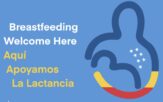In Spring 2026, Breastfeed Durham will celebrate its eighth birthday — nearly a decade of sustained, community-driven systems change. What began as a small pilot guided by the Carolina Global Breastfeeding Institute has grown into one of the most comprehensive community lactation ecosystems in the country.
As Durham’s birth outcomes begin to show signs of stabilization and improvement, this moment offers both a chance to reflect and a chance to chart a bold path forward. The Ten Steps to a Breastfeeding Family Friendly Community have guided us from the beginning, and today they continue to serve as the backbone of our maternal-infant health transformation.
Durham has made measurable progress — and this next chapter is about deepening, strengthening, and expanding.
Here are the priorities Breastfeed Durham will pursue in our eighth year:
1. Expand Free Lactation Clinics & Build Pathway 3 Training Capacity
We will scale our free lactation clinic model with volunteer IBCLCs and pursue Pathway 3 mentorship accreditation, expanding Durham’s lactation workforce and provider diversity.
2. Fully Integrate Infant Feeding Preparedness Across Durham County
Working with DCoDPH, emergency management, and local coalitions, we aim to make Durham the first county in North Carolina with a fully operational, county-wide IYCF-E plan embedded in emergency operations.
3. Strengthen Step 7: Workplaces
By 2026, our goal is to:
- Help 100 additional employers adopt lactation-supportive policies
- Expand support to small, locally owned businesses
- Create a countywide lactation space guide for employers
4. Launch the Updated Human Milk Feeding Strategic Plan
2026 will mark the roll-out of Durham’s updated, community-vetted human milk feeding strategic plan — integrating equity, emergency preparedness, and systems alignment across providers, childcare, workplaces, and social services.
5. Reduce Racial Inequities in Early Prenatal Care & Lactation Access
Using data from the March of Dimes and our annual gap analysis, we will target outreach in communities most affected by chronic stress, structural racism, and under-resourced care.
This includes expanding CHW presence, bilingual supports, and parent-led community spaces.
6. Grow Community-Led Storytelling & Parent Voice
In 2026 we will invest in:
- Parent listening sessions
- Spanish-speaking parent leadership
- Black parent policy circles
- Trauma-informed story collection
- Youth and teen lactation education
Storytelling shapes systems change.
9. Strengthen Hospital–Community Continuity of Care
We will continue working with Duke and UNC clinicians to:
- Align discharge lactation protocols
- Create seamless referral routes
- Reduce delays in outpatient support
- Advance Baby-Friendly alignment
A Vision for 2026 and Beyond
Durham’s improvements in maternal and infant health are not accidental — they are the result of nearly eight years of structured, community-driven systems change.
The Ten Steps gave us a framework.
The community gave us momentum.
And now, heading into our eighth year, we are focused on scaling what works, deepening equity, and ensuring every family in Durham — regardless of income, insurance, language, or ZIP code — has the support they need to feed their babies safely.
Durham is showing what public health can be when a community refuses to accept preventable harm.
And we’re just getting started.
